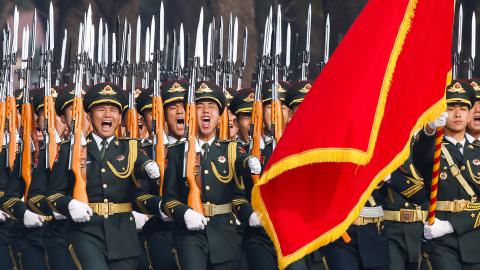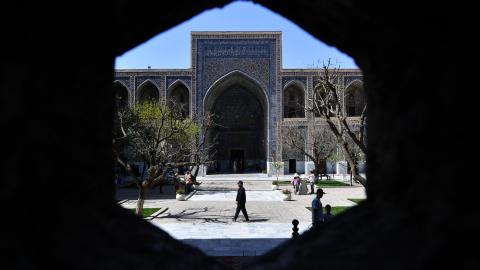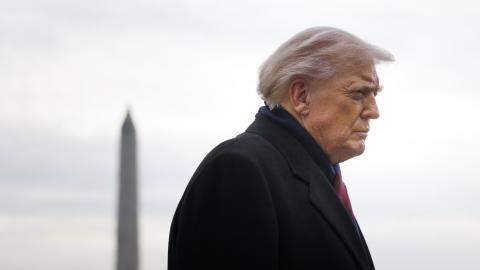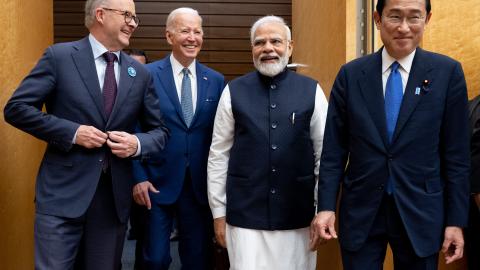Pageantry versus principle. China delivers on the first and we offer the second. That is what senior politicians from the four Quad countries tell me.
The leaders of the US, Japan, India and Australia will meet in Delaware this weekend. In their own words, they will discuss how to advance an open and stable Free and Open Indo-Pacific in practical ways. For Quad countries, nations have equal rights regardless of differences in size or power. Competition and commerce will be fair and transparent. What’s not to like about these principles?
Earlier this month, China hosted 51 African heads of state for the Ninth Forum on China-Africa Co-operation in Beijing. Unlike the Quad meeting, Chinese summits with African, Southeast Asian and Pacific nations are elaborate and ostentatious affairs. The show is plainly designed to impress leaders of smaller nations and reinforce China’s place at the top of an emerging Sino-centric hierarchical order.
Surely fair principle will trump cynical pageantry. Who wants a hierarchical order where China reserves special rights and privileges for itself? As it turns out, quite a few ruling elites from developing economies willingly fall for Chinese pageantry and what lies behind it. Many of the world’s rich democracies might be hardening their views of China. But in much of the developing world, the reverse is occurring. Principle is not winning the day.
Let’s pit the Chinese approach against ours. We assume our vision of a world offering states equal rights and privileges is an inherently attractive one. After all, most developing economies are relatively weak and small states – exactly the entities that ought to seek protection against a state of affairs Ancient Greek historian Thucydides observed more than 2000 years ago: the strong do what they can and the weak suffer what they must.
However, there is far more sophistication and strategy behind Chinese pageantry than putting on a show. In recent years, Beijing has introduced some ideas crafted specifically to appeal to developing economies. Under enigmatic concepts such as the Global Development Initiative and Global Security Initiative, Xi Jinping speaks confidently about a common destiny and shared future for mankind.
At the heart of these strange-sounding concepts is the idea that China is agnostic about the nature of one’s political, economic or social institutions and practices. More than this, Beijing offers the prospect that China will help one achieve rapid economic development without changing, much less reforming, one’s institutions and practices. For many corrupt or incompetent regimes, this is a godsend.
It is clear the Chinese promise of material progress without needing to change is very attractive to ruling elites seeking to preserve their exclusive rights and privileges. For them, who needs liberal notions of transparency and accountability when these might well weaken their status, position and hold on power. Think former leaders Manasseh Sogavare of Solomon Islands or Najib Razak of Malaysia.
What about a Sino-centric hierarchy? Doesn’t this terrify smaller nations? It depends on what one gets out if it. We promise rules under which economies and firms jostle for advantage. The outcome is not certain but is based on merit, cunning and skill. China promises guaranteed material benefits regardless of merit, cunning and skill. All one must do is submit to and participate in the Sino-centric system.
If one is a political elite of an economy that has difficulty attracting foreign capital and skilled workers, China offers an immediate solution. A joint venture with a Chinese firm where one is receiving a minority share of benefits is better than receiving nothing at all. Such Chinese largesse can seem more attractive than relying on aid from the democracies with all the pesky conditions attached to the latter.
Indeed, the interests of many developing economies are diverging from our own. For example, the Quad countries correctly argue that Chinese intellectual property theft, subsidies and other advantages given to Chinese firms crowd out other international firms and drive them out of business. It happened with solar panels and is occurring with electric vehicles. Developing economies mostly do not care. Their firms are not sophisticated or well-equipped to compete in advanced sectors. They might as well benefit from buying from a flood of artificially cheap Chinese products.
It all leads to the uncomfortable reality that good principle is unlikely to prevail in a region where virtue among many ruling elites is in shorter supply than we might like. Excusing or even enabling the proclivities of some ruling elites in developing nations for fear of causing offence is a losing strategy. If they seek a better long-term outcome for their nation, then enable them.
If they don’t, expose them or work around them as best we can. As for the Quad, using it to counter China and prioritising co-operation with other nations willing to do the same will cause some disquiet in the region. But this is better than remaining timid and allowing geopolitical events to reduce it to irrelevance.
Enjoyed this article? Subscribe to Hudson’s newsletters to stay up to date with our latest content.



















